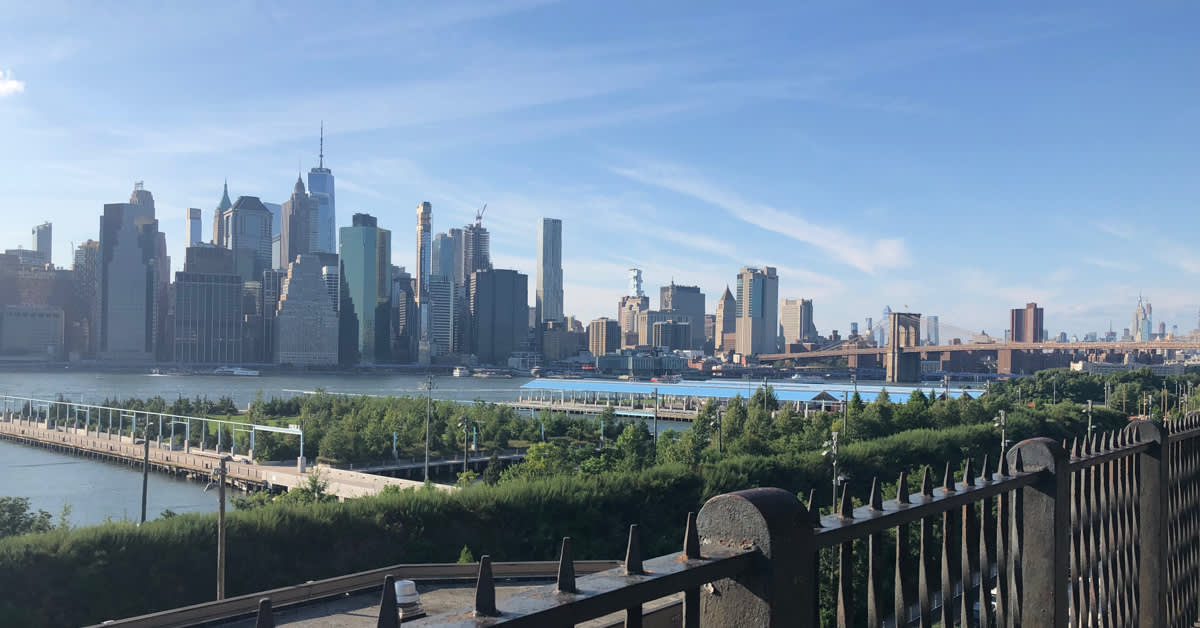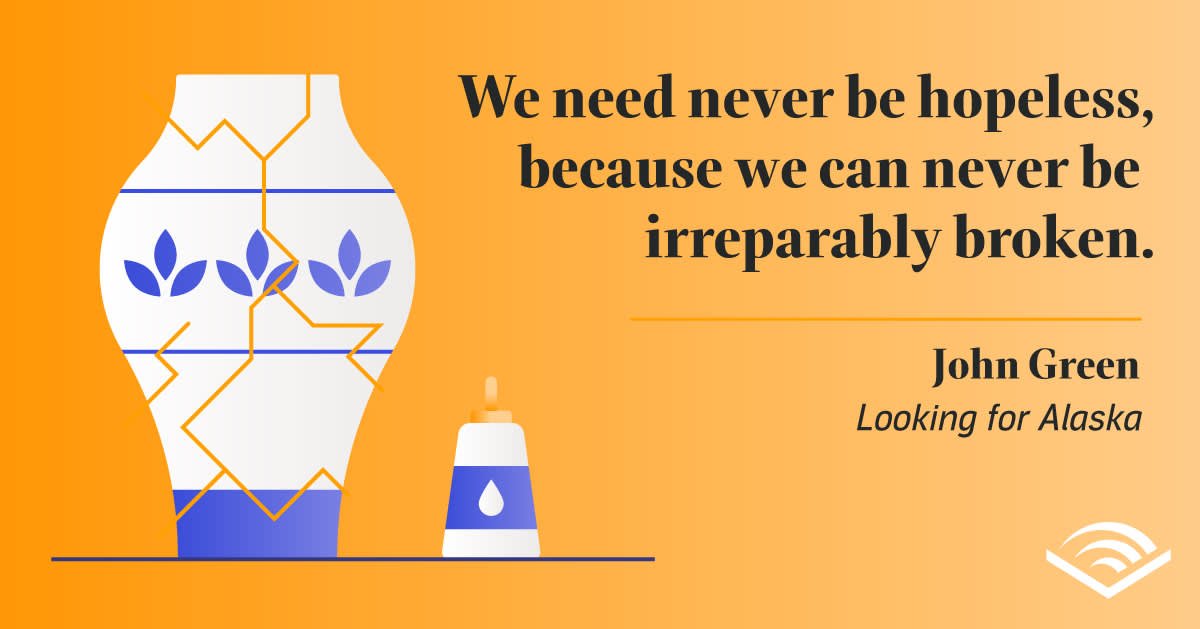I was just starting elementary school on September 11, 2001, and yet I still carry the memory of that day in the core of my being: the announcements, frighteningly calm, over the loudspeaker; the solemn conversations between teachers in the hall; the glow of the television we huddled around at home. Friends and family retain their own indelible images: paperwork carried boroughs away by the wind, heavy layers of soot and ash that eclipsed the light, people waiting in line for pay phones as cell networks overloaded. Many were subjected to (and still endure) the sting of bigotry and hate, unfairly associated with the perpetrators due to their names, their religion, the color of their skin. Others suffered the unimaginable as their fathers, mothers, husbands, wives, brothers, sisters, friends, and children were cruelly taken away.
Our collective sorrow was unfathomable, yet in spite of the shock and sorrow, there remained a glimmer of hope and recovery. Strangers and neighbors banded together, cultivating a sense of community built on decency, kindness, and an intimate understanding of the grief each of us carried. The days and weeks that followed the attacks demonstrated both the depths of our resilience and our capacity for empathy and unity, even in the wake of an event that initially felt impossible to recover from.
From the courageous passengers and crew of United 93 who sacrificed their lives to save countless others, to the first responders and bystanders who ran headfirst into fire and rubble to find survivors, to all those who were simply going into work or a meeting at the World Trade Center or the Pentagon, the experiences of those who died—and those who survived—serve as reminders of how precious and how fragile our existence truly is. We choose to remember and honor them every day, but especially today: With 23 years of distance, historical and personal perspectives alike have become all the more complex and poignant.
As we reflect on another anniversary of this formative American tragedy, we’re sharing a collection of oral histories, personal narratives, political context, and even fiction that enhances our understanding of September 11, 2001. In these disparate listens from diverse storytellers, their words, voices, and accounts help to ensure we will never forget, that the passage of time will never erode the memory of those loved, lost, and left behind.
This Audie Award-winning edition of Garrett Graff’s The Only Plane in the Sky is narrated by a cast of 45 different voices, crafting an experience that echoes the multitude of individuals who experienced the events of September 11, 2001 firsthand. In this moving compilation of eyewitness recollections, interviews, transcripts, and documents, the day unfolds from the perspectives of those who lived it, from ticket agents and flight attendants to government officials in underground bunkers to those on the ground, searching for survivors amidst the rubble. This sobering yet necessary listen serves as a stunning reflection on the most human moments of one of our darkest days.
Twenty-two years after opening, Guantánamo Bay is back in the spotlight. As the fourth season of Serial investigates the notorious prison, former inmate Mansoor Adayfi takes a more personal perspective in his immersive Audible Original. “Guantánamo is a dark and scary place,” says Adayfi, who became one of the prison's first inmates after being sent there in the weeks following September 11, “but if you look closer, you will find friendship, love, and even art.” In Letters from Guantánamo, Adayfi’s art is epistolary. Written in chains, often in hunger and isolation, his missives were addressed to notables from the pope to Martin Luther King Jr., but they had a secret, intended audience: his captors. Read by Adayfi and a full cast, they paint a portrait of resistance, resilience, and the triumph of the creative spirit.
In this masterful history written and narrated by Pulitzer Prize-winning author Lawrence Wright (Going Clear), listeners get a engaging yet comprehensive look at the key figures, ideologies, and events that culminated in the September 11th attacks. Based on five years of research and hundreds of interviews Wright conducted in the Middle East, Europe, and the United States, The Looming Tower is a definitive account from a nonfiction writer at the top of his game. Through the intersecting narratives of four key players—al-Qaeda leaders Osama bin Laden and Ayman al-Zawahiri, FBI counterterrorism chief John O'Neill, and former head of Saudi intelligence Prince Turki al-Faisal—Wright provides intimate insights into the geopolitical underpinnings and future lessons of a formative American tragedy.
Mitchell Zukoff, who led the Boston Globe team that reported on the impact of 9/11 on victims and families, brings that same meticulous eye for detail and dedication to honoring the stories of those who lost their lives to Fall and Rise. A chronicle of what transpired during assaults on the World Trade Center and Pentagon, and on the hijacked United Airlines Flight 93, this listen is a minute-by-minute account of the victims, survivors, heroes, and families that underscores the magnitude of the day’s immense confusion and fear while immortalizing the extraordinary courage and remarkable strength of spirit exhibited by those caught in the middle.
There are few stories that capture humanity’s tremendous capacity for generosity and tenderness quite like The Day the World Came to Town. With our country’s airspace closed following the events of September 11th, 38 civilian jetliners were rerouted to Newfoundland, Canada, landing in Gander International Airport. More than 6,500 passengers and flight crew members, frightened and exhausted after a full day of being onboard an aircraft, disembarked and found themselves immediately welcomed with open arms by the townspeople. The citizens of Gander cooked and served a feast, shuttled passengers to shelters, gathered supplies, linens, and toiletries, and shared their televisions and home computers—ensuring every single one of their temporary residents felt safe, comfortable, and cared for.
Another listen that exemplifies the goodness exhibited on a day that felt impossibly bleak, The Red Bandanna details the life and final sacrifice of Welles Crowther, a 24-year-old man who worked as an equities trader on the 104th floor of the WTC’s South Tower. In his teens, Crowther had been a volunteer firefighter for Empire Hook & Ladder Company #1 in his hometown of West Nyack, NY. When the building was struck, Crowther wielded his emergency training and a seemingly boundless degree of bravery and compassion to make multiple trips to the 78th floor, the tower’s sky lobby, leading three groups of people to safety before the building collapsed, administering first aid, and offering encouragement and leadership along the way. His story stands as a testament to the astonishing degree of heroism exhibited by otherwise ordinary people on September 11th.
Losing a parent at any age, in any manner, is incredibly difficult, but there is a unique agony for those whose mother or father died on 9/11. So many families were left without closure, left to dwell on the painful possibilities of their loved one’s final moments. Matthew John Bocchi was only nine years old when his father was killed in the attack on the World Trade Center, and brokenhearted, he soon became obsessed with tracing exactly how his father had died. In Sway, Bocchi unpacks the toll that his father’s death took on him emotionally, while also detailing how a violation by a trusted adult and the pull of addiction and abuse led him down a harrowing road. Described as the first memoir ever written by a child of 9/11, this listen will break your heart and put the pieces back together time and again.
Sometimes, it is a work of fiction that proves particularly poignant in the face of tremendous grief. Jonathan Safran Foer, who lived in New York at the time of the attacks, channeled his experience into Extremely Loud and Incredibly Close, a portrait of love, loss, family, and trauma told primarily through the eyes of nine-year-old Oskar Schell, whose father was killed in the World Trade Center on 9/11. Alternating between Oskar’s attempts to make sense of the tragedy and an epistolary thread detailing the story of Oskar’s grandparents who lost everything in the firebombing of Dresden nearly half-a-century prior, this listen gets to the heart of what it means to search for solace when your very understanding of safety has been completely upended.
Iranian-American author Tahereh Mafi also drew on her experiences post-9/11 to craft the absolutely breathtaking young adult novel, A Very Large Expanse of Sea. Growing up as a young Muslim after the attacks, Mafi faced bigotry, violence, and hate, traumas she explores through her protagonist, Shirin. Set in 2002, this listen considers the degradation and prejudice that many Muslim and Middle Eastern Americans faced after the attacks, as well as the familiar frustrations of youth. Ultimately a bright and hopeful coming-of-age narrative set in an era of great suffering, A Very Large Expanse of Sea offers a perspective on life after the attacks that is all too often overlooked.
In this groundbreaking documentary podcast, a riveting retelling of 9/11 from the perspectives of FBI agents who were engaged in direct response, expert analysis and experience overlap with the shock of the day and the complex national and international issues that would follow. Told by a diverse group of agents in their own words, the series tracks both the emotional beats and fast-paced procedural drama from Ground Zero to the Pentagon, Yemen, Afghanistan, and beyond to give a first-of-its-kind oral history from within the field. Acclaimed performer Dion Graham guides the narrative, providing an authoritative, compassionate voice across all 16 episodes.
For listeners who either weren't yet born or too young to remember the events firsthand, fiction can help bring the history of 9/11 to life, which is just what Alan Grantz offers in Ground Zero. Grantz is no stranger to approaching difficult subjects for middle grades and young adults (as he did previously with Prisoner B-3087 and Refugee), and this listen explores all of the perspectives and complexities of such a world-shattering event. The narration shifts from Brandon, a kid visiting his father at work at the Trade Center, to Reshmina, an Afghan girl living in the devastation of war; the result is an audiobook that encourages greater empathy and understanding for all of those impacted by the specter of terrorism.
This day is painful for so many; if you’re struggling with grief or trauma, you are not alone. The resources below offer support, whether you’re in need of treatment, assistance, community, or simply looking for someone to talk to.
Crisis Text Line: Text “CONNECT” to 741741.
The National Alliance on Mental Illness (NAMI): Call 1-800-950-NAMI or visit nami.org/help to chat online.
Substance Abuse and Mental Health Services Administration (SAMHSA) National Hotline: Call 1-800-622-HELP.
NYC Well: Residents of New York City can reach a trained counselor by texting “WELL” to 65173, calling 1-888-NYC-WELL, or chatting online at nycwell.cityofnewyork.us/en.
The Voices Center for Resilience: Visit voicescenter.org to access a range of services and support for survivors, families of victims, responders, and communities affected by the attacks.
Tuesday’s Children: Geared towards families who suffered as a result of the attacks, you can visit tuesdayschildren.org to learn more about programs for youth and adults alike.
September 11th Families Association: Those seeking peer support and resources for recovery can visit this organization at 911families.org.















